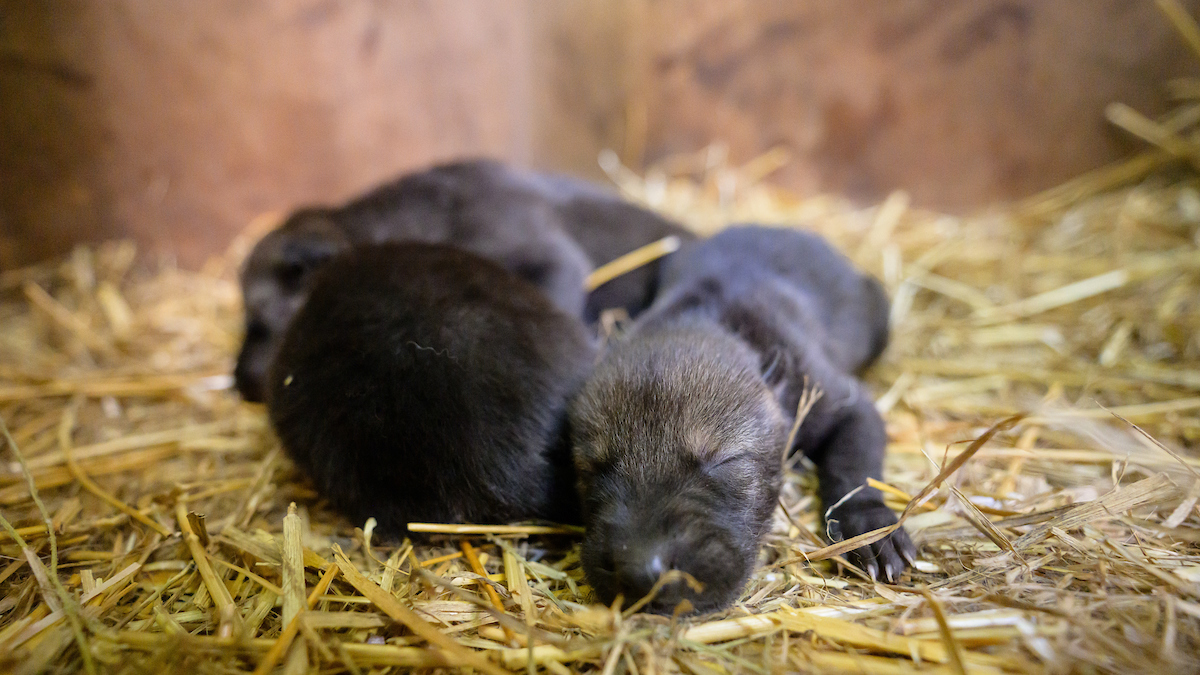Howlelujah! Critically Endangered Red Wolf Pups Join NC State’s Pack
The College of Veterinary Medicine community is euphoric that the pups thrived during their first week, gaining weight and showing no signs of abnormalities.
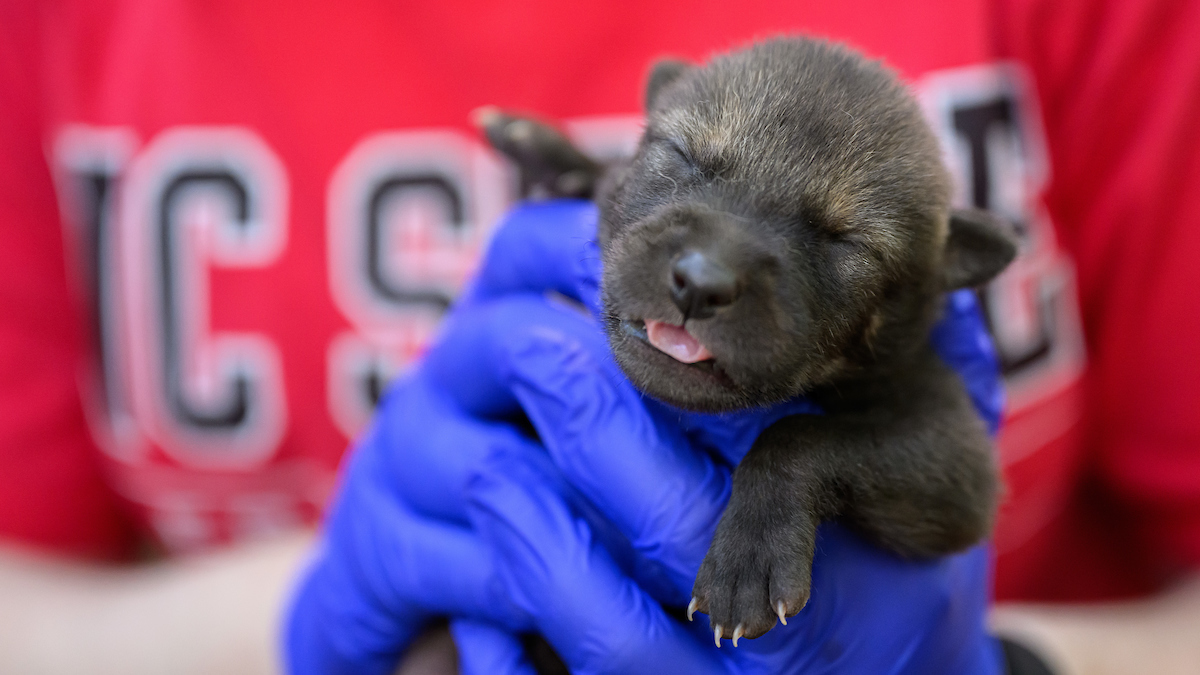
PUPDATE #3: JUNE 7, 2024
The NC State College of Veterinary Medicine is sad to announce that the smallest of our red wolf pups has passed away. While our Carnivore Conservation Crew team has been working tirelessly to care for the pups, the first 30 days of red wolves’ lives are full of challenges, and deaths are not uncommon.
“In working with the Red Wolf Program, the main goal is to have the process with the puppies be as natural as possible with the parents raising the puppies. The first 30 days of a pup’s life are the most challenging, and sadly, even as in nature, not all puppies make it,” said Dr. Tara Harrison, an associate professor of zoo and exotic animal medicine and the Carnivore Conservation Crew faculty adviser.
Despite this disappointing loss, we’re grateful that we still have two healthy and fast-growing pups as we continue our efforts to help recover the world’s most critically endangered canid species. The puppies are nearly 30 days old, and since our last pupdate, their eyes and ears have opened, they have been dewormed, they have received their microchips and they’ve begun exploring outside the den. Remember the Tupperware container we used to weigh our pups before? They barely fit inside it now and have graduated to a bucket!
We appreciate everyone’s continued support as our puppies grow! Read all of our pupdates below.
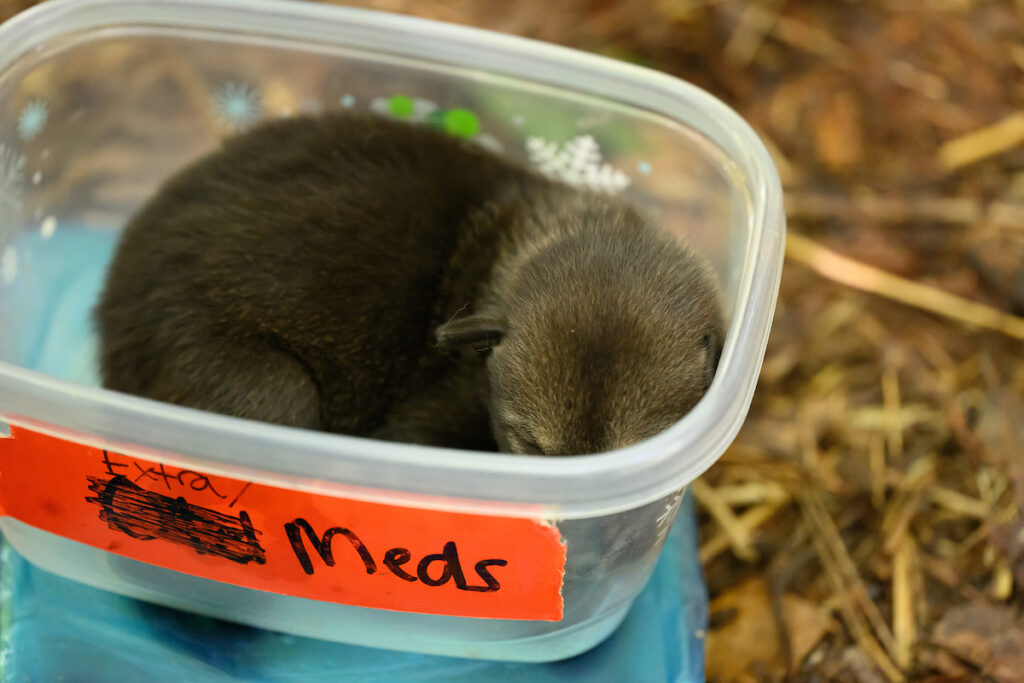
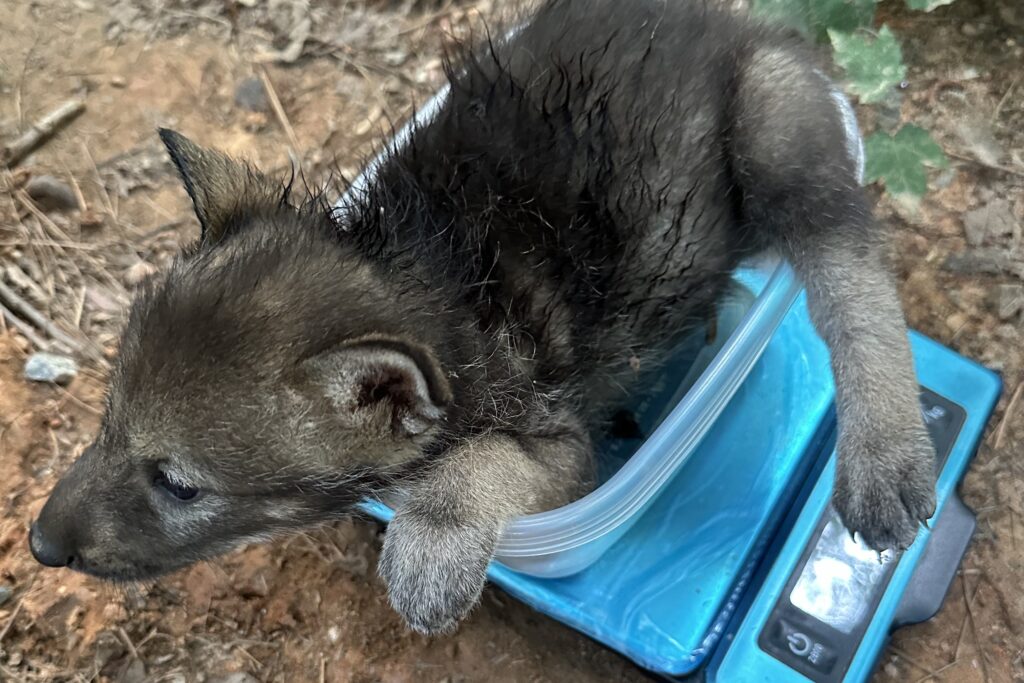
PUPDATE #2: MAY 24, 2024
The three NC State College of Veterinary Medicine red wolf puppies born over Mother’s Day weekend are nearing two weeks old and growing fast! The Carnivore Conservation Crew headed out earlier this week to check in on the pups and administer their de-worming medicine to keep them healthy in a natural habitat. Each new member of our pack is gaining weight and has started opening their eyes!
Interested in helping support these new pups and red wolf conservation?


PUPDATE #1: MAY 19, 2024
The number of critically endangered red wolves cared for on the NC State College of Veterinary Medicine campus jumped from five to eight over Mother’s Day Weekend when breeding pair Penny and Jewell produced precious puppies.
To the indomitable delight of the NC State faculty, clinicians and students who care for the Wolfpack’s red wolf pack, the two female and one male pup thrived during their first week, gaining weight and showing no signs of abnormalities.
“This is what it’s all about,” said Caroline Diehl, a second-year DVM student and co-president of the college’s student-led Carnivore Conservation Crew. “There’s no other reward like seeing a brand new baby endangered red wolf pup on your own campus and being a part of keeping the species alive.”
Red wolves had been a top predator across the Southeast but were headed for extinction in the 1970s before the U.S. Fish and Wildlife Service captured 14 and created a captive breeding and release program. About 250 red wolves currently are under human care at 41 partner facilities.
Fewer than 30 red wolves live in the wild, all inside the Alligator River National Wildlife Refuge on the coast of North Carolina. With its world-class veterinary clinicians and facilities just hours away, the NC State College of Veterinary Medicine plays a vital role in the federal Red Wolf Recovery Program.
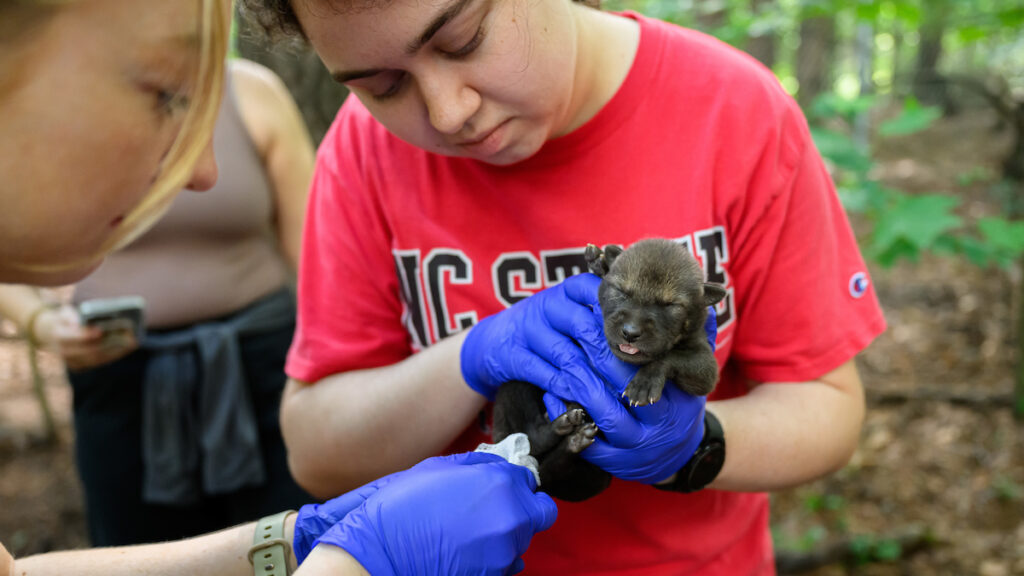
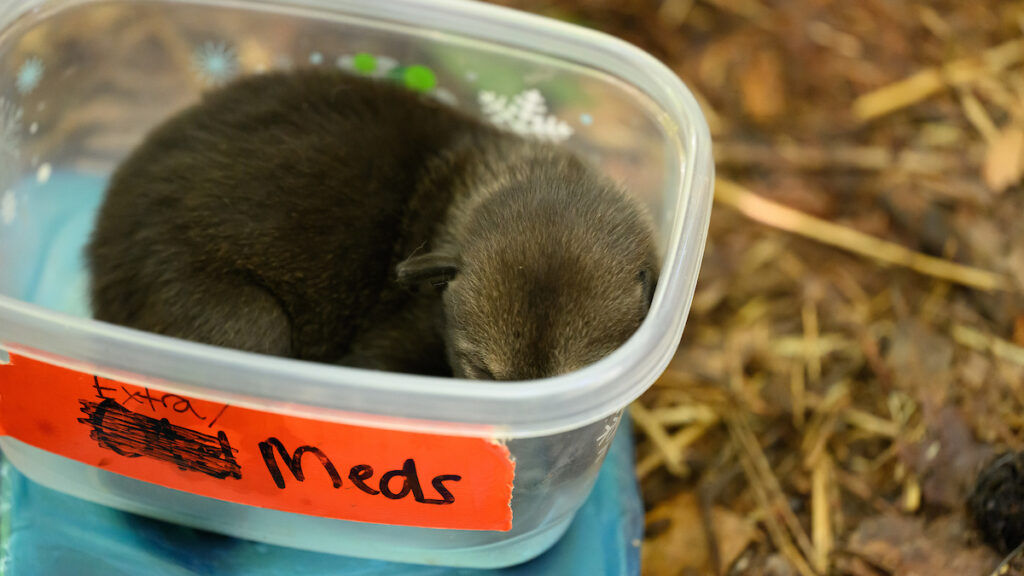
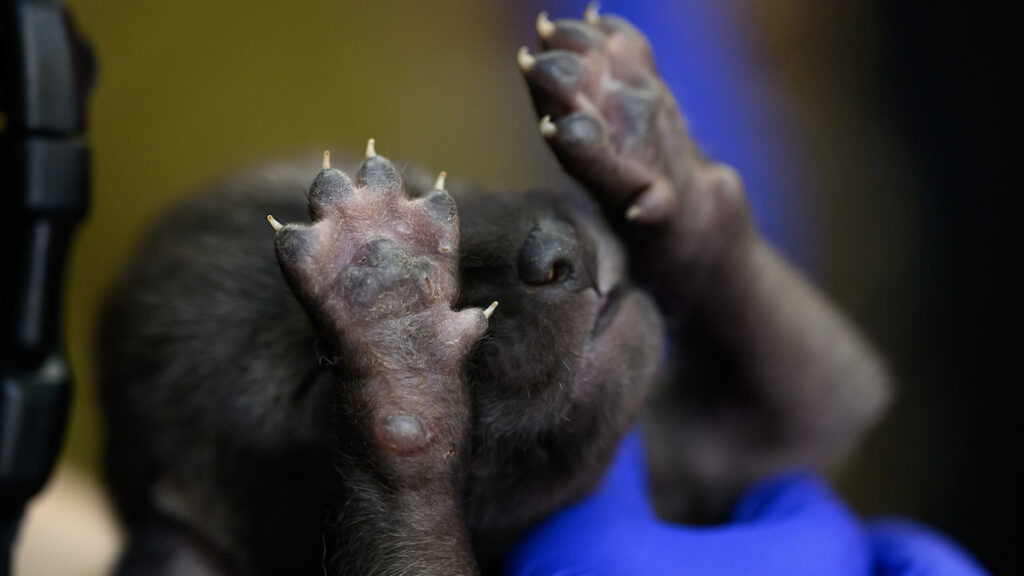
“We at NC State have been involved in the Red Wolf Recovery Program since we got our first wolves in 2001, and we are just ecstatic over the births of these pups,” said Dr. Tara Harrison, associate professor of zoo and exotic animal medicine. “In addition to the medical care we provide wolves both wild and from our partners, we’re teaching future veterinary professionals how to carry on and do that work. We’re not only making a difference today, we’re making a difference in the future.”
Members of the Carnivore Conservation Crew — about 50 NC State veterinary students who volunteer to be a part of teams that feed, water and care for the wolves each day — performed physicals on the three new pups last week as Harrison directed the activity.
“Since a lot of the time we lose red wolves because of things humans did, it’s up to us to make sure we get them back out there,” said Jessica Petry, a second-year DVM student. “It’s just a fantastic thing to see these new puppies being born, the numbers going up, especially because we very easily live on a timeline where they could be no more.”
So far, 2024 has been a fruitful year for red wolves.
In April, the U.S. Fish and Wildlife Service reported an unusually large litter of eight puppies born in the wild at the refuge in North Carolina. The average litter for red wolves is four to six pups.
At the partner agencies across the United States, 13 litters have been born, Harrison said, with three of those litters at NC State, the North Carolina Zoo and the Museum of Life and Sciences.
The zoo, where about 30 red wolves are cared for, announced the births of four puppies in April. At the museum in Durham, first-time parents Oak and Adeyha produced seven pups, with five surviving.
Oak was born at the NC State College of Veterinary Medicine in 2019, a single birth and the last successful litter at the college until now.
Because of the small genetic pool remaining among the wolves, the Red Wolf Species Survival Captive Breeding Plan puts genetically compatible couples together, which means some of the wolves are transferred among facilities each summer after the birthing season.
All of the wolves under human care are entrusted to the U.S. Fish and Wildlife Service through the Endangered Species Act. Because the agency could decide to release a wolf into the wild at any moment, caretakers work hard not to train or tame the wolves.
“I didn’t even know this existed until I started at NC State, but it’s pretty neat to be the Wolfpack and have a wolf pack — I don’t think most schools can say that for their mascot,” Petry said. “It’s like being part of a little secret club, but we’re raising awareness now because we need the public to understand how critical this work is.”
In addition to Penny and Jewell, NC State’s adult red wolf pack members are Boone, Oak’s father, and another breeding pair, Emerald and Waya. The breeding season lasts into June.
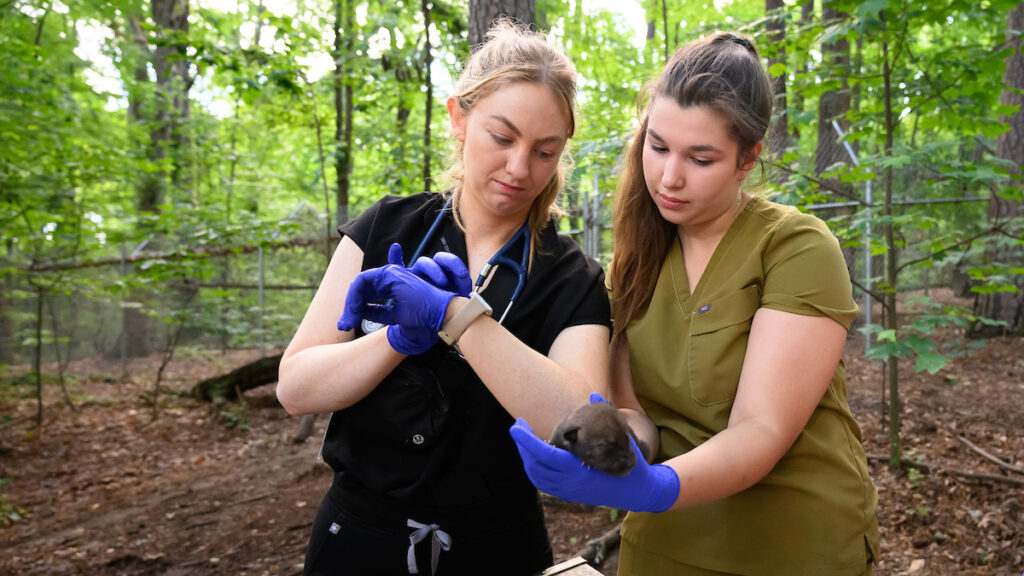
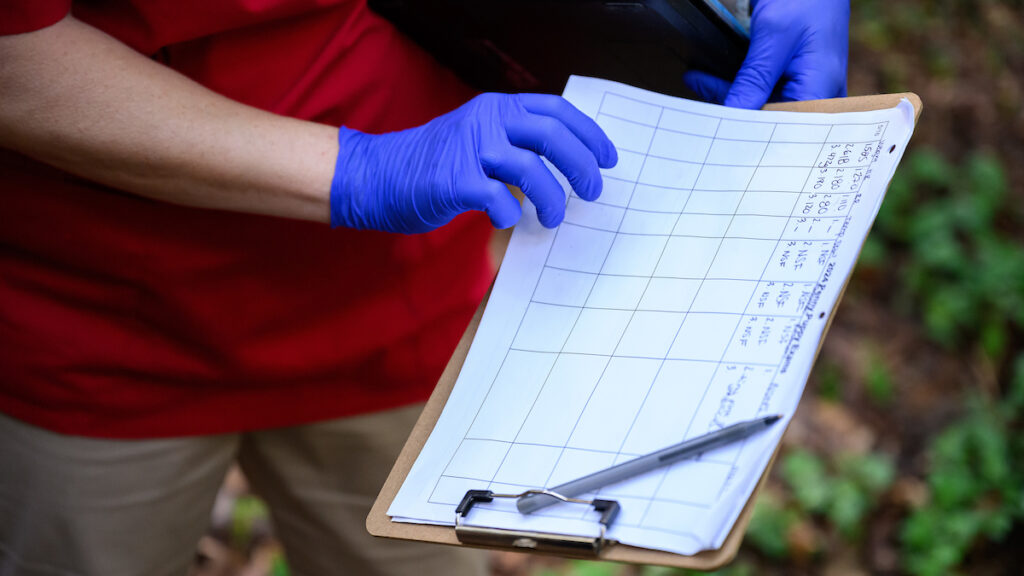
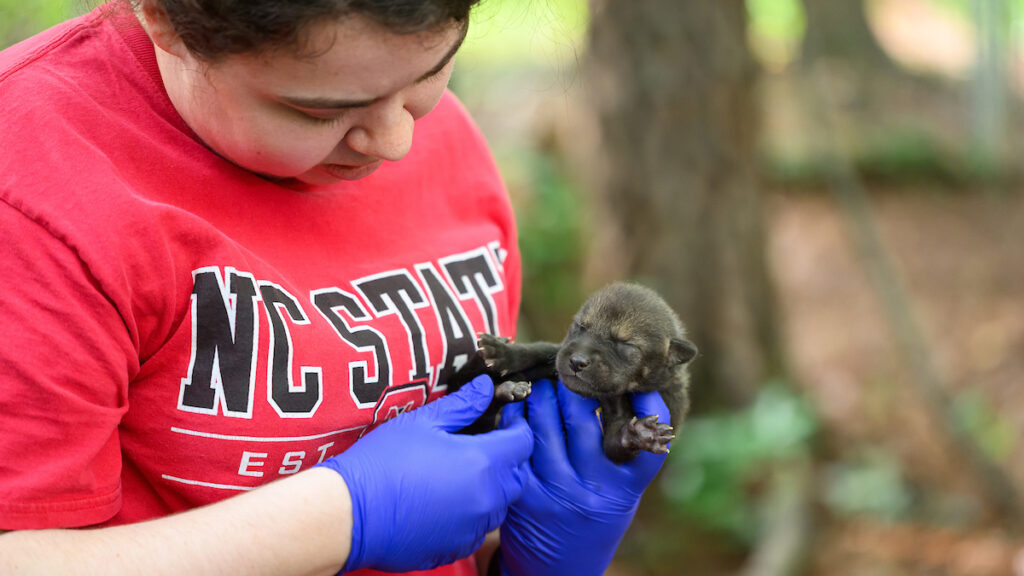
- Categories:
